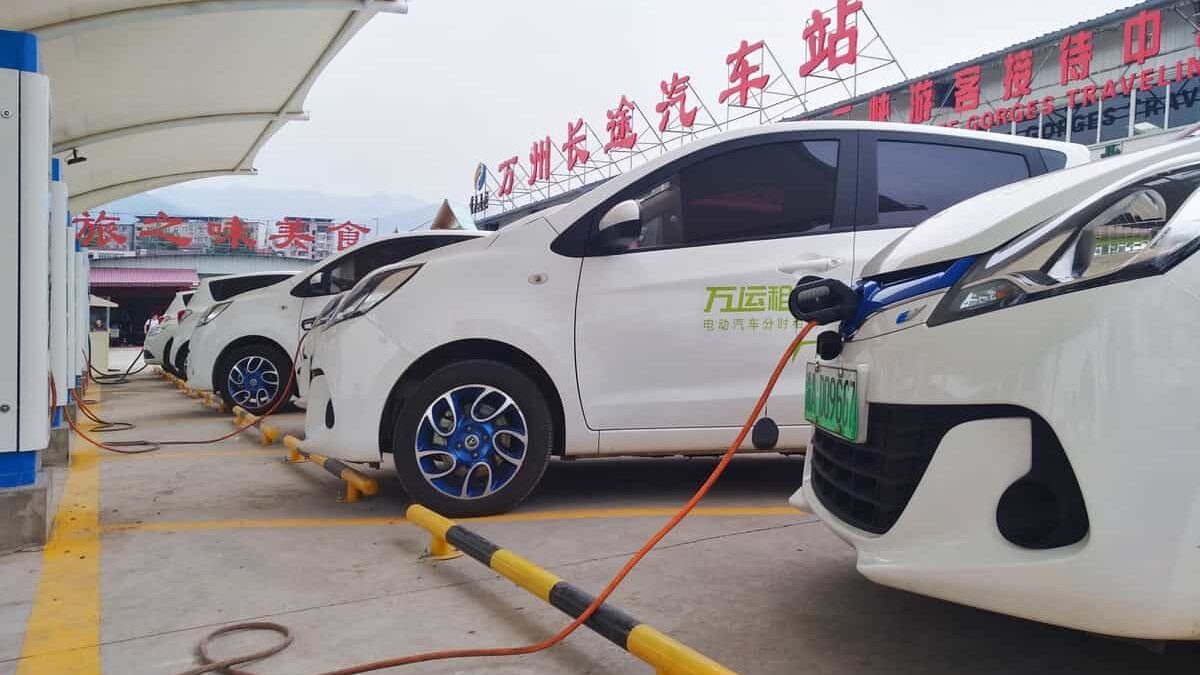The Municipal government of Beijing recently announced plans to extend tax breaks for electric vehicle purchases in a bid to rejuvenate the market and combat slowing growth.
The EV incentives expiring this year have been extended until the end of 2027, CNBC reports. Consequently, there would be an additional 520 billion yuan ($72.43 billion) in consumer savings.
However, industry experts express concerns that these measures may not be sufficient to reverse the current slump in demand. More specifically, they do not address the main factor impeding EV adoption in the country: mileage issues related to charging infrastructures.
Major challenges of the EV industry: Charging infrastructures
The convenience and accessibility of charging electric car batteries remain significant challenges in the rapidly growing EV market, particularly in China, as highlighted by Autohome CFO Craig Zeng. In a CNBC translation of his Mandarin language remarks, Zeng emphasized that charging EVs is still “relatively troublesome.”
Apparently, limited private parking spaces and restrictions on charger installations in residential areas contribute to the challenge. In urban areas, apartment compounds are the most common living arrangement, with underground parking or lots surrounding the buildings.
For instance, having a designated parking spot without a battery charger can add nearly $100 monthly to apartment rent in Beijing. Zeng pointed out that as more people buy cars in such locations, the charging problem will become increasingly apparent and may affect their decisions to purchase EVs in the future.
Chinese officials acknowledged the charging problems and called for faster installation of charging infrastructure in residential parking spaces, especially in new developments.
The International Energy Agency noted in its 2023 electric vehicle outlook report that over 70% of public fast chargers are currently concentrated in just ten provinces, leaving a large portion of the country underserved.
Fast charging, although faster than regular charging, still takes longer than refueling with gasoline. Despite China leading in global fast charger installations, further expansion and improvement are needed to meet the demands of the growing EV market.
The IEA stresses the importance of accessible and affordable charging infrastructure to sustain EV sales growth. It includes private charging at homes and workplaces and publicly accessible charging stations. Meeting the charging demand is crucial for promoting widespread EV adoption and ensuring a seamless experience for owners.
“Growth in EV sales can only be sustained if charging demand is met by accessible and affordable infrastructure, either through private charging in homes or at work, or publicly accessible charging stations.”
IEA
Serious economic slowdown
The push to drive EV demand in China faces obstacles due to a broader economic slowdown and tepid consumer spending. In fact, the country’s retail sales growth in May was slower than expected compared to the previous year, indicating a decrease in consumer activity.
Auto sales, which constitute a significant portion of retail sales, maintained a steady year-on-year growth but experienced an 8% decline from the previous month. In an attempt to boost sales, many automotive brands have resorted to cutting prices. Despite these efforts, the results have been limited in stimulating consumer demand.
China’s State Council has acknowledged the economic challenges and highlighted the importance of providing additional support, particularly for new energy vehicles like electric cars. However, the measures implemented, including announcements and interest rate cuts, have not met market expectations for broader stimulus.
“Although Beijing may still introduce certain policy measures to stabilize growth in coming months, the disappointing State Council meeting suggests measures for stimulating the economy could be introduced in a gradual manner, as decision-making is now highly centralized with an emphasis on ‘security.”
Nomura analysts said in a report on Monday
The subdued retail sales and automotive market performance highlight the impact of the broader economic slowdown. Moreover, the uncertain economic environment and cautious consumer sentiment have contributed to the challenges faced by the electric car market.
Despite the environmental benefits and potential cost savings associated with electric vehicles, consumers may be more hesitant to make significant purchases due to mileage and charging concerns.
See Also:
- How China established the largest EV charging network in the world
- NIO joins China’s EV price war, cuts $4000 on all models
- Tesla Supercharging network expands by 33% YoY in Q1 2023
- Audi to launch its 1st charging stations in China this year
- Li Auto’s 800 V high-voltage superchargers were spotted in China
All that said, additional measures may be necessary to boost consumer confidence and incentivize electric car purchases. It could include targeted policies such as subsidies, tax incentives, and improved charging infrastructure to alleviate concerns about range anxiety.
Furthermore, broader economic stimulus efforts may be required to stimulate overall consumer spending and drive demand across various sectors, including the automotive industry.

